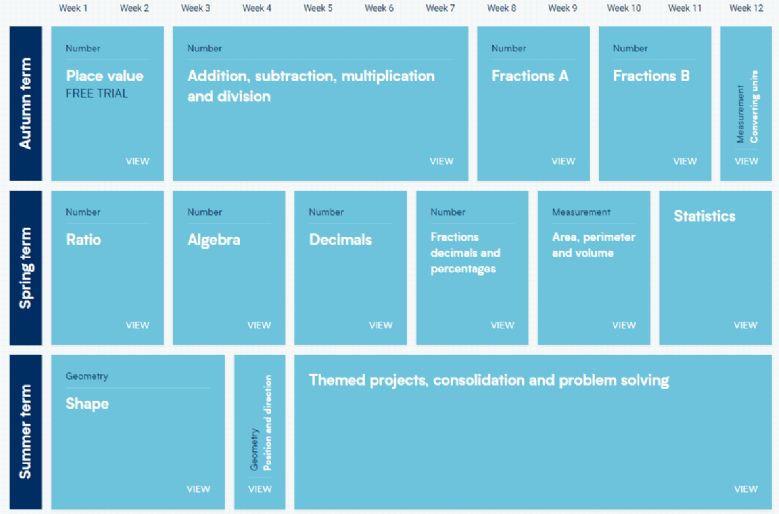Maths
Our Aim for Mathematics at Bosham Primary:
“Our aim at Bosham Primary is for every child to believe they can do maths. We believe every child has the right to be taught maths and to understand the importance of the subject in daily life.”
We achieve this through:
At Bosham Primary School we follow the National Curriculum for Maths using the Maths Mastery approach to teaching. We use the phrase ‘teaching for mastery’ to describe the range of elements of classroom practice and school organisation that combine to give pupils the best chances of mastering mathematics.
Mastering maths means acquiring a deep, long-term, secure and adaptable understanding of the subject. At any one point in a pupil’s journey through school, achieving mastery is taken to mean acquiring a solid enough understanding of the Maths that has been taught to enable him/her move on to more advanced material.
Five Big Ideas in Teaching for Mastery:
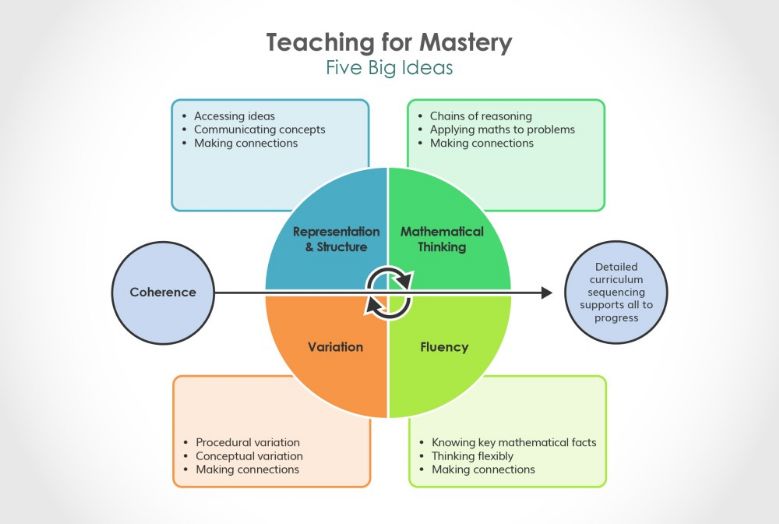
A central component in the NCETM/Maths Hubs programmes has been the discussion of Five Big Ideas, drawn from research evidence, which underpins teaching for mastery.
Coherence: Connecting new ideas to concepts that have already been understood, and ensuring that, once understood and mastered, new ideas are used again in next steps of learning, all steps being small steps. This is achieved through pre-teaching and recapping previous years learning.
Representation and Structure: Representations used in lessons expose the mathematical structure being taught, the aim being that students can do the maths without recourse to the representation. This is through the use of practical resources, varied pictorial representations and building on prior learning
Mathematical Thinking: If taught ideas are to be understood deeply, they must not merely be passively received but must be worked on by the student: thought about, reasoned with and discussed with others. We achieve this through encouraging talk within lessons, providing plenty of opportunities for children to access reasoning and problem-solving activities and through effective questioning.
Fluency: Quick and efficient recall of facts and procedures helps free up the children’s working memory and provides the flexibility to move between different contexts and representations of mathematics. Within every lesson we provide opportunities for children to apply their mathematics using concrete and pictorial representations.
Variation: Varying the way a concept is initially presented to students, by giving examples that display a concept as well as those that don’t display it help develop a child’s understanding. Also, carefully varying practice questions so that mechanical repetition is avoided, and thinking is encouraged.
To help your child learn their times tables please follow this link to TTRockstars. Your child will have an account, which is tailored to their next steps. We often run timetable competitions to encourage children to practise their times tables at home.
We follow the White Rose programme of study, supplemented with additional resources to develop Maths Mastery. The teachers supplement their planning with the NCETM Spines, Gareth Metcalfe and NRich resources. Please see the programme of study below, for each Year group. Teachers have the flexibility to make adaptations to the length of time spent on a unit depending on their year groups’ needs.
Year R
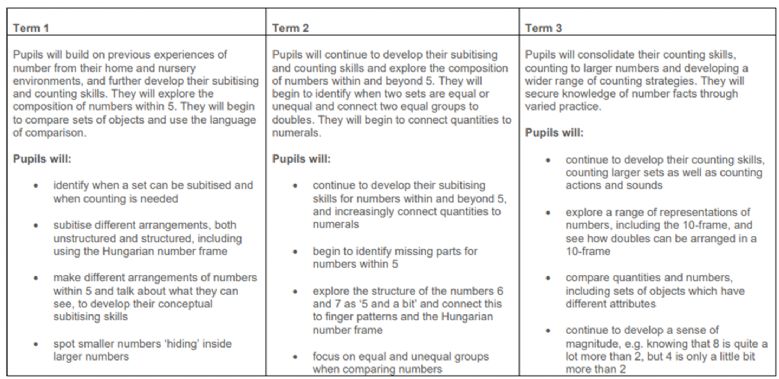
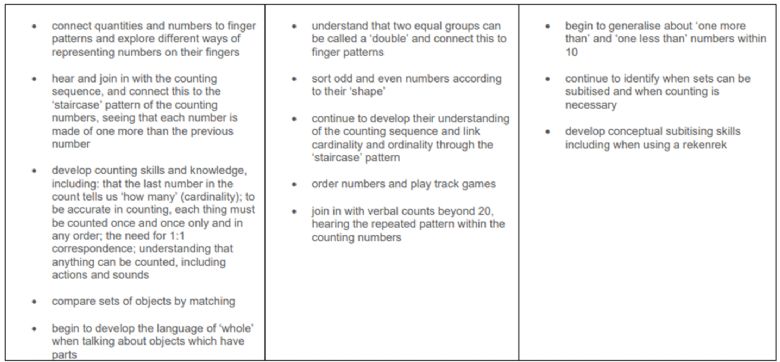
Year 1
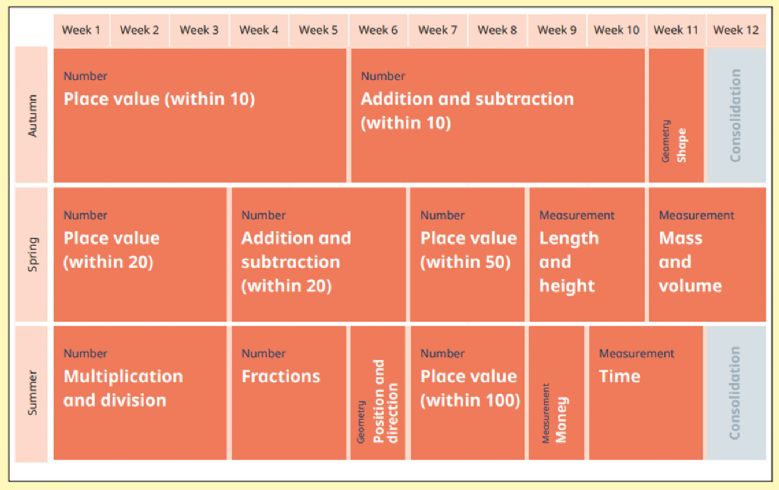
Year 2
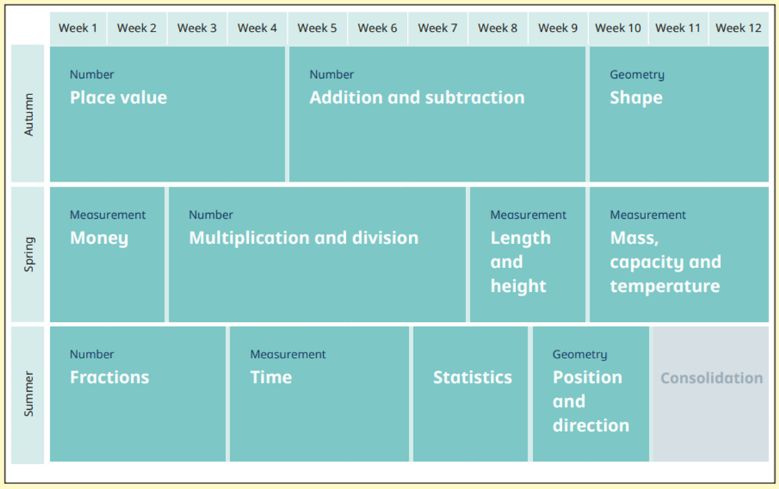
Year 3
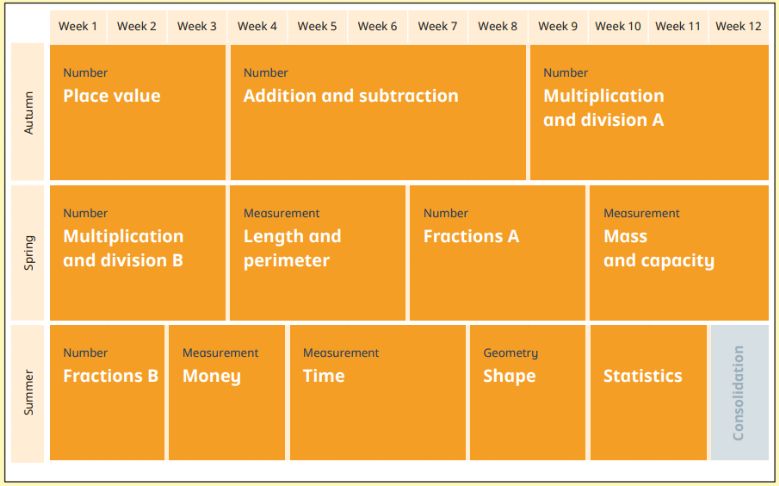
Year 4
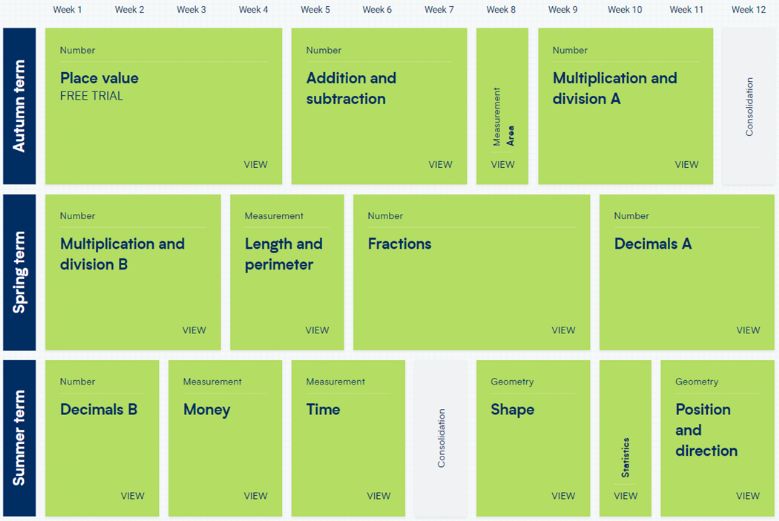
Year 5
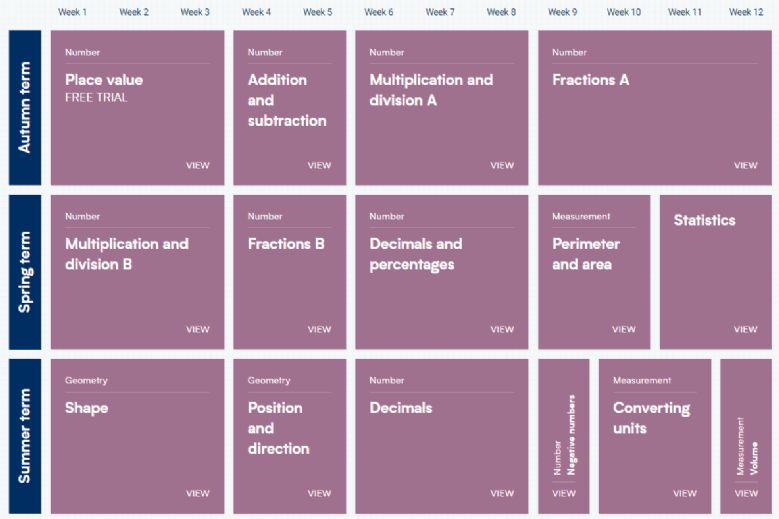
Year 6
